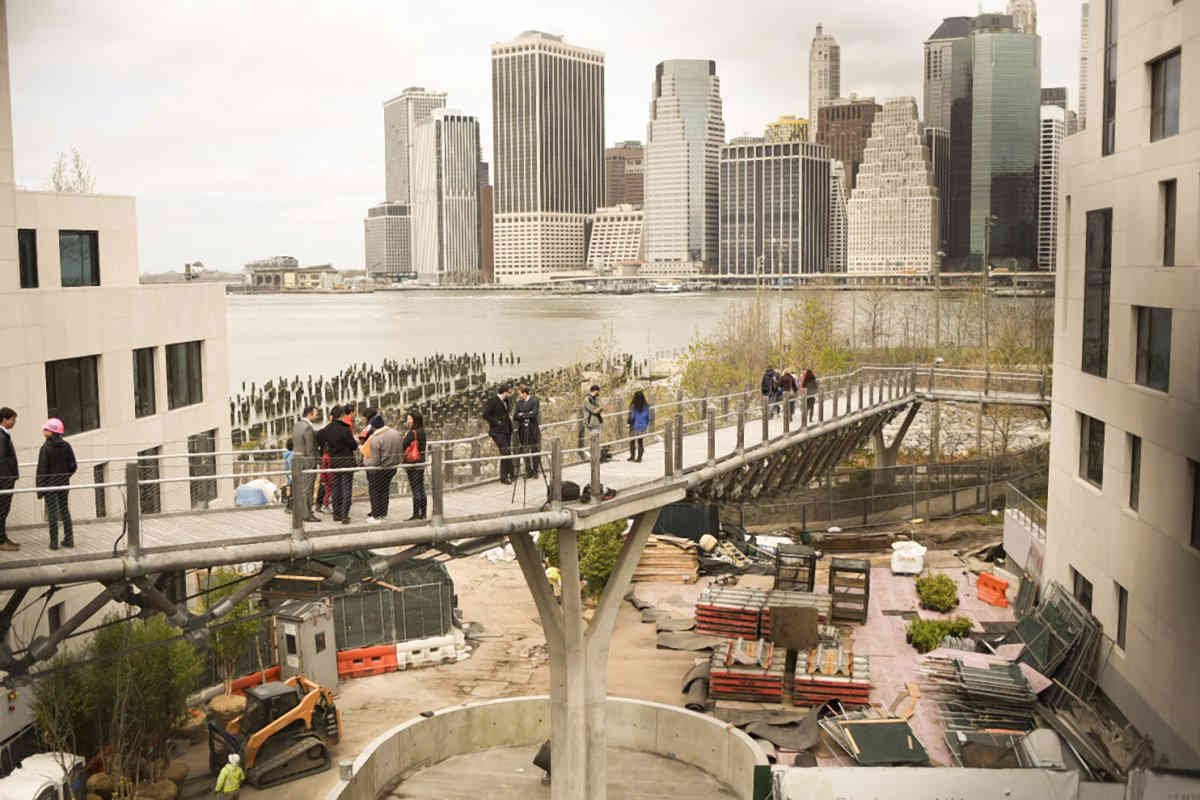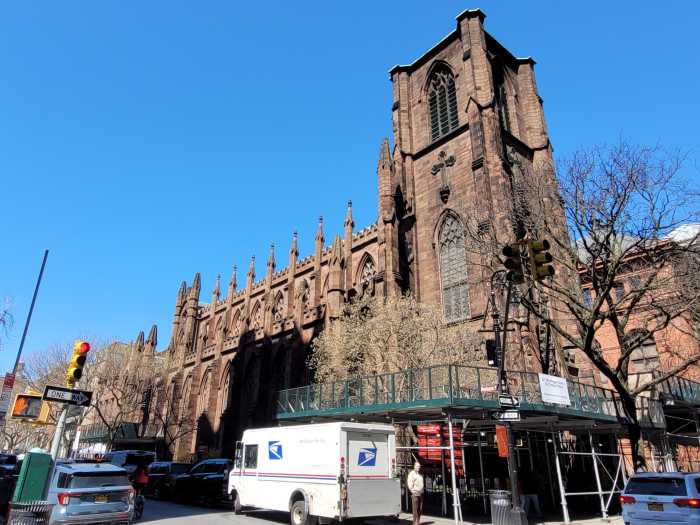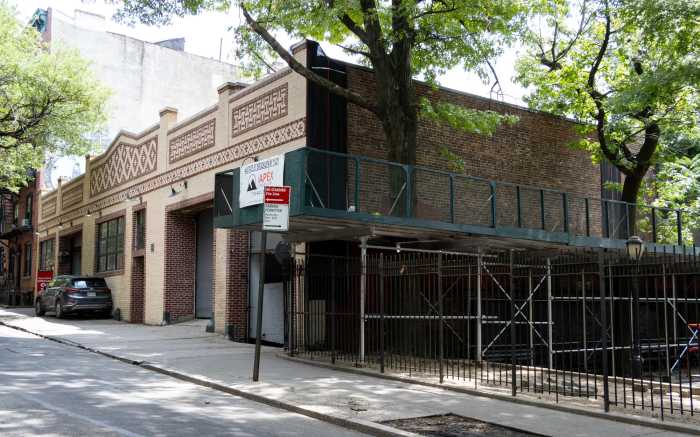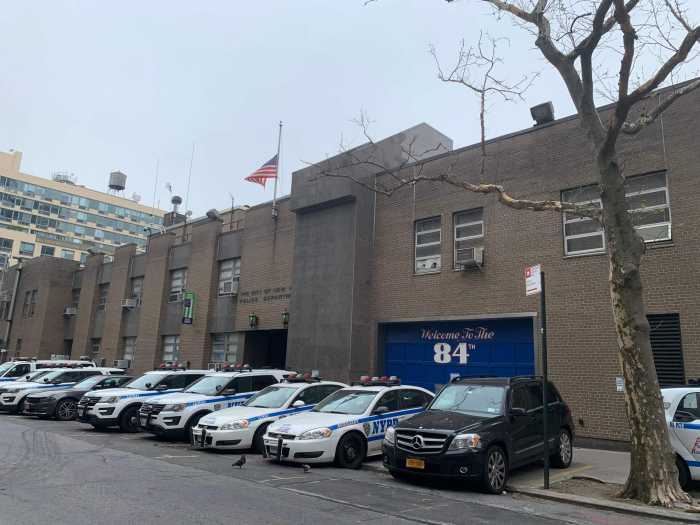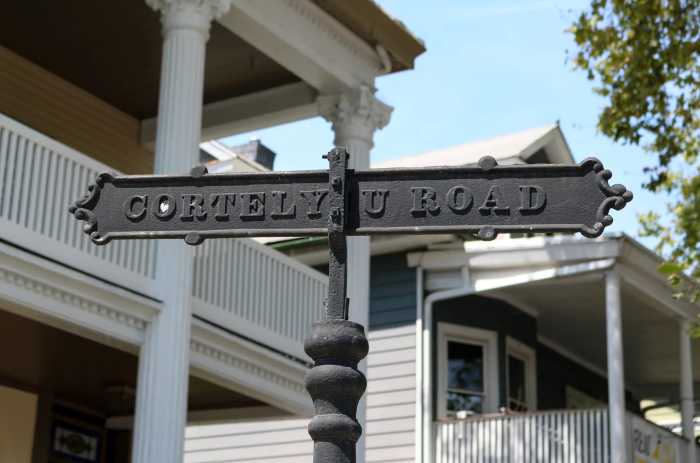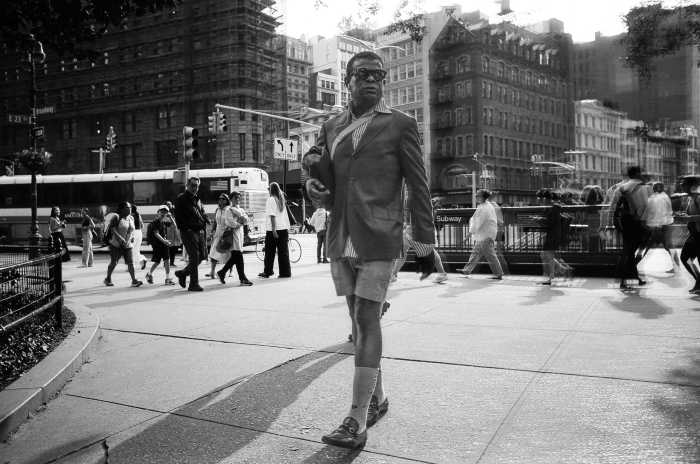Brooklyn Bridge Park bigwigs are shelling out millions of dollars to build an entirely new span in place of the beleaguered Squibb Bridge, which zig zags from its namesake park in Brooklyn Heights down to the waterfront lawn below, and for the second time closed due to structural problems back in July.
“We have announced plans to fully replace Squibb Bridge,” Eric Landau, president of the semi-private Brooklyn Bridge Park Corporation, which oversees the green space, said at a Dec. 5 corporation board meeting. “There is certainly a long history with this bridge.”
Weeks after its recent closure, Landau in September told locals that the original span funded by some $4 million in taxpayer dollars — which opened in 2013, closed the next year for a roughly $3-million repair, and reopened in April 2017 before shuttering again this year — would be off limits indefinitely, because what park leaders thought was just a single faulty piece of wood turned out to be one of several planks decaying due to “higher than expected moisture levels,” even though one of the bridge’s main materials, black locust, is supposed to withstand heavy moisture.
Engineering firm Arup Group, the company that completed the bridge’s first repair after it closed in 2014, surveyed the span after it shuttered this year. That study ultimately resulted in two options for Brooklyn Bridge Park keepers: repair the crossing for a second time, or build a new overpass from scratch, Landau said. And meadow stewards chose the latter, but decided to use steel and aluminum for the Squibb’s second coming, instead of its original wood.
“Based on a variety of factors that is the decision we made,” he said.
The new span will be built by Manhattan–based company Turner Construction, take roughly 18 months to complete from the start of the design process through construction, and cost the park $6.5 million — $2.5 million more than repairing the current bridge would have cost, according to Landau, whose rep said the cash to construct the new crossing will come from funds generated by development projects and concession sales in the green space.
But the extra dough is worth the investment to create a safer and more reliable bridge that will hold up for decades and require little ongoing maintenance, said Landau, who spoke to this newspaper after giving website Curbed the exclusive on the new span.
“We believe that buys us certainty, first and foremost,” he said. “Additionally, the fact that the wood will continue to deteriorate will end up costing us significantly more money in the long run.”
Many taxpayers, however, won’t soon forget watching the millions they coughed up for the original bridge — whose creator Brooklyn Bridge Park leaders fired and sued in 2016 amid the span’s first fix — essentially go down the drain now that most of the Squibb will be replaced, according to a Brooklyn Heights resident who formerly represented the neighborhood in Albany for 30 years.
“We spent a lot of money on that bridge and it’s been a major disappointment,” said attorney and former state Sen. Martin Connor, who sits on the Brooklyn Bridge Park Corporation’s 17-member board of directors.
Landau said he expects the second iteration of the Squibb Bridge to be ready by 2020 — the same year a local pol hopes the pool meadow stewards are building in Squibb Park will open as well.
But the park head — who before the bridge shuttered in July said he could not promise that construction of the pool wouldn’t require him to close the span he is now replacing — wouldn’t comment on the possibility of the two projects butting heads.
And he offered no more clarity on when the swimming hole will be ready for locals to dive in, stating his staff must first raise all the necessary funds and choose an architect before he can provide a timeline.
“I’m not going to give you a year,” he said. “What we have said is that we hope to have the pool as soon as we can. Once we have an architect on board, and the fund-raising continues, we will have a better sense of a schedule for the pool.”
Landau also is confident that the looming reconstruction of the Brooklyn–Queens Expressway’s triple cantilever — which stretches 1.5 miles between Atlantic Avenue and Sands Street, and cuts beneath the stretch of Columbia Heights where locals currently enter Middagh Street’s Squibb Park — won’t affect work on the new bridge or pool, although he conceded that using either during the expressway repair may not be a pleasant experience.
“It is possible that while the BQE is (under) construction there will be impact of the enjoyment of the space as it relates to noise and dust, but there are things we can do operationally to mitigate that as well once the pool is open,” he said.


